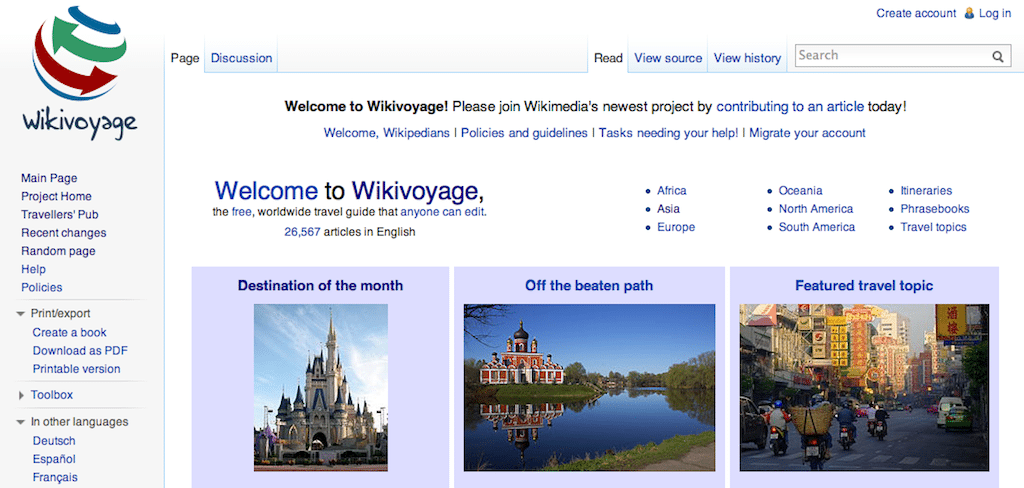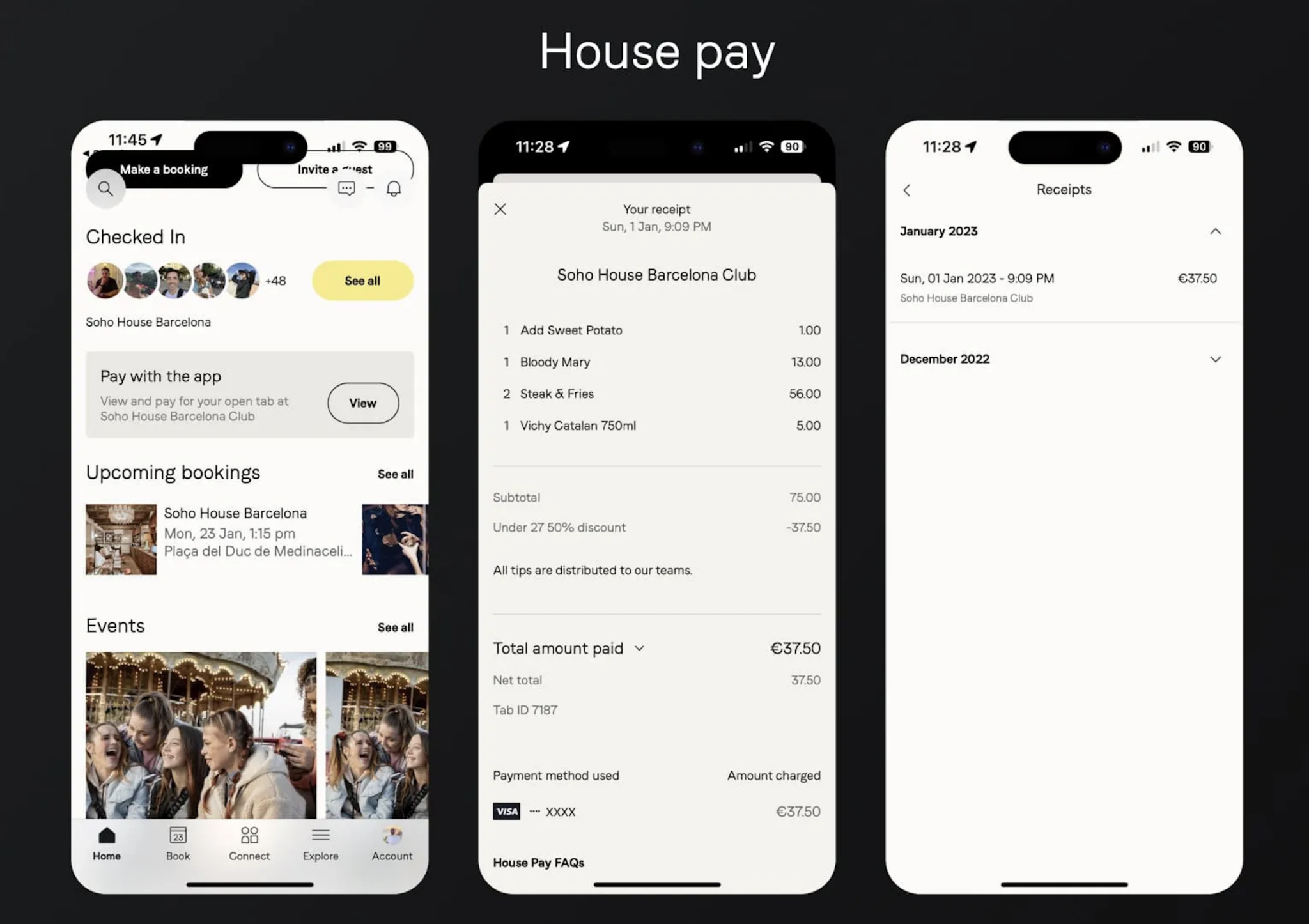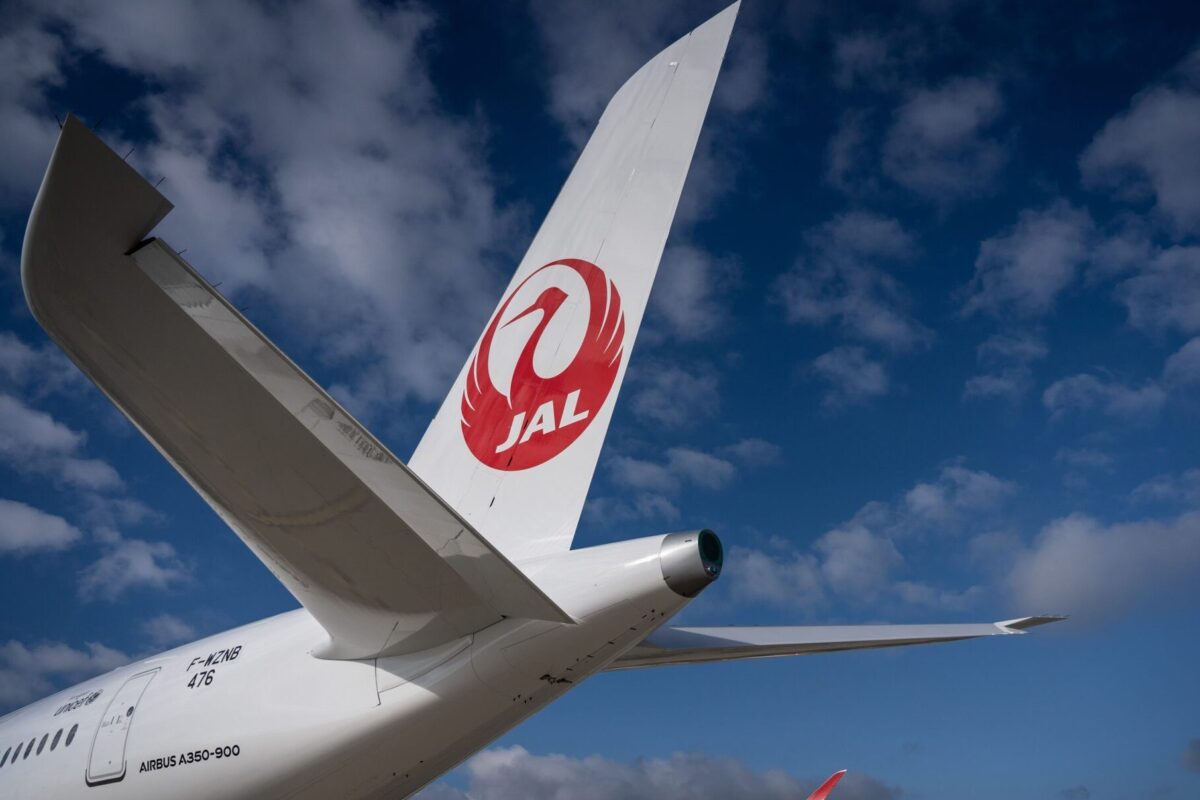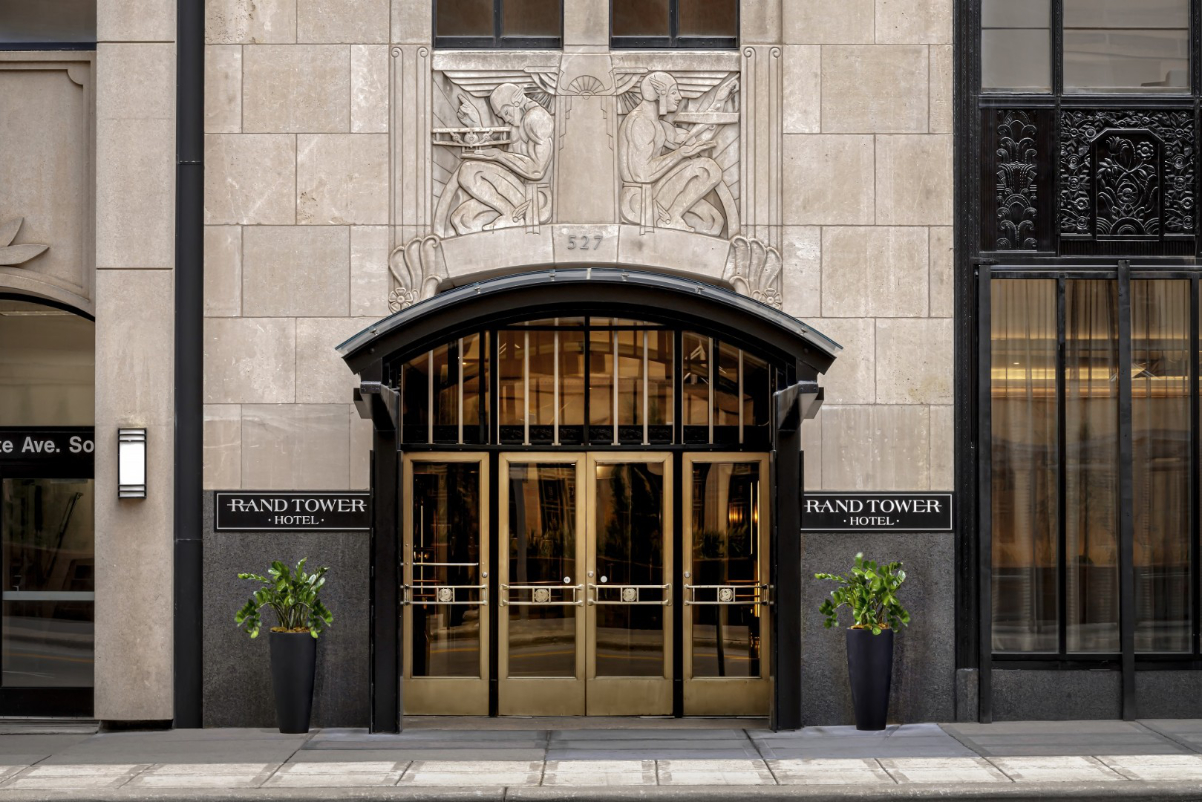Interview: Wikipedia’s travel site Wikivoyage launches today amidst big hopes

Skift Take
Six months after some Wikitravel administrators broke ranks with the site’s parent company Internet Brands and began planning an advertising-free travel guide, Wikivoyage officially launched today.
The official debut of the Creative Commons license-driven travel guide comes on sister company Wikipedia’s 12th birthday. But, SEO-hog Wikipedia will be giving its young sibling plenty of gifts for the occasion in the form of ample promotion from Wikipedia pages.
Meanwhile, the spurned Wikitravel, which unsuccessfully sought a partnership with Wikivoyage’s sponsor, the Wikimedia Foundation, and sued on several fronts for alleged intellectual property violations, has changed the introduction on its homepage to emphasize that, “Since 2003, Wikitravel is the original, free, complete, up-to-date and reliable worldwide travel guide, and is the premier travel wiki on the Internet.”
Let the competiton between the two travel wikis, as well as with commercial travel guides such as Lonely Planet, commence.
To mark Wikivoyage’s official launch, Skift asked Peter Fitzgerald, Wikivoyage administrator, a few questions.
Skift: If a traveler is visiting a destination covered in Wikivoyage, in what ways will the content be superior to the plethora of guidebooks that cover the destination? In what ways might it be inferior?
Fitzgerald: First and foremost, our information is free! Free to use, free to print, free to share, free to remix, free for just about anything! (As long as the attribution and licensing terms of our license are met.)
Second, we have a huge advantage in breadth of coverage. We aim to cover the entire world — not just the parts that are most lucrative to write about. We have great guides to places barely covered or simply never even mentioned by a commercial guide, like Colombia’s River of Seven Colors, Wake Island, Staraya Russa, etc. At the same time our best guides to more popular destinations, such as Chicago, Copenhagen, Bangko
Third, we are, or at least have the potential to be, more up-to-date than commercial travel guides. Our guides are updated every day as people edit them, rather than once every couple years according to the financial realities of traditional publishing. As a multilingual guide (we have nine different language versions already), we also get updates from every corner of the globe, from people of all sorts of different backgrounds.
Wikivoyage’s weakness right now is uneven coverage. You could find yourself reading a fabulous guide, and then navigate to a mere outline of an article. We are aiming to be a travel guide to the world, but there are a lot of places still to be written about. With ever greater exposure, we expect to gain the critical mass of contributors necessary to even things out.
Skift: Why have you chosen to offer no in-article links other than to official websites? Doesn’t that short-change readers?
Fitzgerald: Our policy on external links is an ever evolving one, and we are indeed looking into other ways of both providing readers with easier ways to access external content, while also integrating externally produced content into our guides. The principal challenge we face in maintaining our guides is spam from marketers and business owners, and limiting the use of external links has been an effective tool to meet that challenge. We also want our guides to be able to stand on their own — for use on the go when travelers don’t have access to the Internet and cannot follow such links.
Skift: How will you drive traffic to Wikivoyage so that it is a resource that travelers will be aware of? How will you use Wikipedia to accomplish this goal?
Fitzgerald: We think content drives traffic. We’ll focus on creating the best travel content on the web, and then let Google figure out how to send readers to the best content. That said, as a sister project to Wikipedia, we will have links from corresponding Wikipedia pages (like a link from Singapore on Wikipedia to Singapore on Wikivoyage) that can only help bring in more readers and contributors.
Skift: Why have you chosen not to be a yellow pages, limiting recommendations of things to a handful of venues?
Fitzgerald: As with any travel guide, we don’t want to overload travelers with options. Travelers want a good list of 5–10 well-sorted and clearly described options of any given type, e.g., five boutiques in a fashionable neighborhood, seven dirt-cheap eateries in a Chinatown, 10 fine dining establishments downtown, etc., not 200 possibilities to wade through. Also, we want our guides to be useful on the road — imagine stuffing a printout listing every restaurant, food stall, and watering hole in Bangkok when you venture forth into the metropolis!
Note: Regarding the lawsuits, an Internet Brands lawsuit against two of its former Wikitravel administrators has been dismissed, and Wikimedia Foundation v. Internet Brands is now proceeding toward trial.




